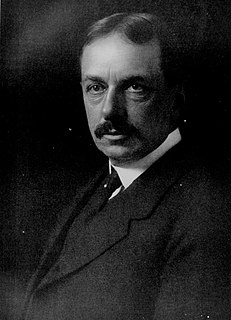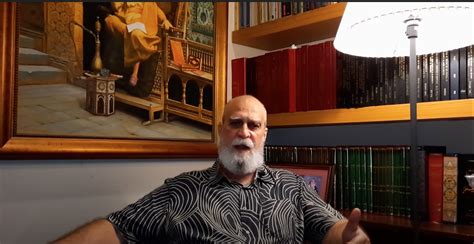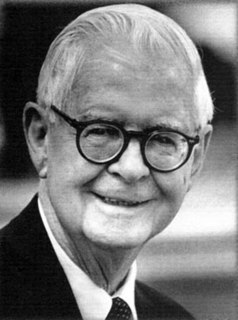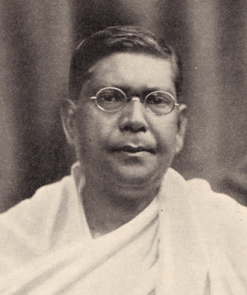A Quote by Ralph Waldo Emerson
A poet is no rattlebrain, saying what comes uppermost, and, because he says every thing, saying, at last, something good; but a heart in unison with his time and country. There is nothing whimsical or fantastic in his production, but sweet and sad earnest, freighted with the weightiest convictions, and pointed with the most determined aim which any man or class knows of in his times.
Related Quotes
The all-round liberally educated man, from Palaeolithic times to the time when the earth shall become a cold cinder, will always be the same, namely, the man who follows his standards of truth and beauty, who employs his learning and observation, his reason, his expression, for purposes of production, that is, to add something of his own to the stock of the world's ideas.
The truly educated man is not a man who knows a bit of everything, not even the man who knows all the details of all subjects (if such a thing were possible): the “whole man” in fact, may have little detailed knowledge of facts and theories...but he will be truly in touch with the centre. He will not be in doubt about his basic convictions, about his view on the meaning and purpose of his life. He may not be able to explain these matters in words, but the conduct of his life will show a certain sureness of touch which stems from this inner clarity.
Just because a man is dressed in a clean white robe does not mean his heart and hands are clean. Any man who neglects his conscience is a dangerous animal. Never judge a man by his image. Images can be bought or produced by any Hollywood producer, marketing team or fleet of stylists. Even kids know how to wear amazing costumes for Halloween. Always judge a man by the coloring of his heart and only his heart. Truth can be found in his record of actions, not intentions.
A man is known by the books he reads, by the company he keeps, by the praise he gives, by his dress, by his tastes, by his distastes, by the stories he tells, by his gait, by the notion of his eye, by the look of his house, of his chamber; for nothing on earth is solitary but every thing hath affinities infinite.
A person who is obsessed with Jesus knows that the best thing he can do is be faithful to his Savior in every aspect of his life, continually saying "Thank You!" to God. An obsessed person knows there can never be intimacy if he is always trying to pay God back or work hard enough to be worthy. He revels in his role as a child and friend of God.
The poet wants to ‘say’ something. Why, then, doesn’t he say it directly and fortrightly? Why is he willing to say it only through his metaphors? Through his metaphors, he risks saying it partially and obscurely, and risks saying nothing at all. But the risk must be taken, for direct statement leads to abstraction and threatens to take us out of poetry altogether.
[About Swami Vivekanada:] I am not saying that the message of the Swami was the final word in our nationalism... But it was tremendous - something with an undying glory of its own. If you read his books, if you read his lectures, you are struck at once with his love of humanity, his patriotism, not abstract patriotism which came to us from Europe but of different nature altogether a more living thing, something which we feel within ourselves when we read his writings.
And because the condition of Man, (as hath been declared in the precedent Chapter) is a condition of Warre of every one against everyone; in which case every one is governed by his own Reason; and there is nothing he can make use of, that may not be a help unto him, in preserving his life against his enemyes; It followeth, that in such a condition, every man has a Right to every thing; even to one anothers body.









































